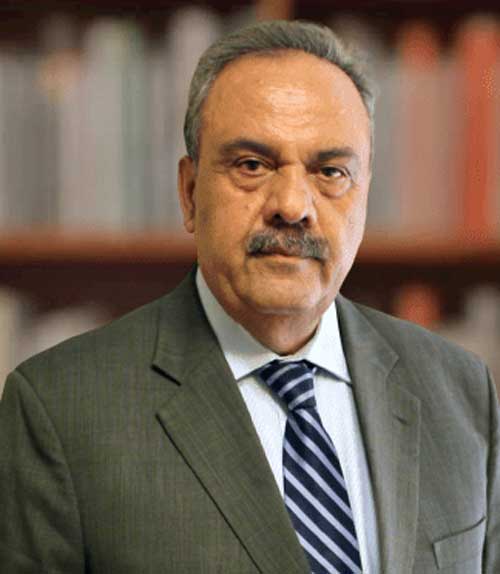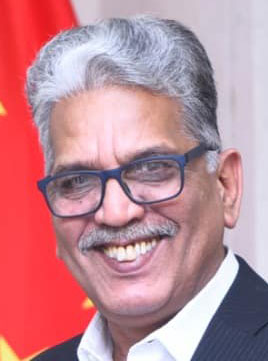Finally, the Organization of Islamic Cooperation (OIC) has decided to convene an extraordinary ministerial meeting in Islamabad on December 19 to discuss the humanitarian crisis in Afghanistan. The session should provide an opportunity for the 57-member organization to look for solutions for the looming crisis in the war-torn country. It is the second extraordinary meeting of the OIC being held in Pakistan after 41 years. The first such meeting took place in 1980 after the Soviet invasion of Afghanistan. Apart from Pakistan, which sensitized the countries globally, the credit should go to the Saudi Crown Prince Mohammad bin Salman who agreed to convene the OIC ministerial meeting to help mitigate the Afghan miseries.
The change in Afghanistan was on expected lines, but the change would come so sudden was not expected; even the Taliban are puzzled. Now the country faces a dire future. The religious militia may have succeeded in convincing the Americans to leave the country, but for the time being, the victorious Taliban are seeking international assistance to feed the people. It is much easier for Americans to resort to sanctions than to lose American lives in a remote corner of the world.
The American exit from Afghanistan is perplexing from different angles. The Afghanistan war turned out to be America’s longest war of its history, so was for the Afghans. Despite being an absolute power, the US had to leave the country without gaining much. Rated as terrorists, the Taliban entered into dialogue with the Americans as interlocutors and convinced the latter to withdraw from the country. In return, the Taliban agreed not to allow the Afghan soil to become a sanctuary for the Al-Qaeda or Daesh.
Ideally, the US-Taliban agreement should have ended the animosity between the parties, but this has not been the case. Despite promising to delist the Taliban from the 1267/1988 sanctions list of the UN Security Council by 27th May 2020, the US failed to honour its commitment.
The ground reality is that none of the countries has recognized the Taliban regime, not even Pakistan, which facilitated the talks between the Taliban and the Americans. The primary reason for countries’ reluctance to recognize the Taliban regime is the American annoyance. Most of the countries do not want to be on the wrong side of the United States. However, a host of factors should encourage the countries to calibrate their policies towards the Taliban regime to avoid pushing the poor Afghan population into an avoidable catastrophe. There could be mutual obligations that the Taliban and their interlocutors may adopt.
First, the Taliban can widen the base of their government to make it more inclusive. They must listen to the international voices which call for an inclusive government that may satisfy the broader sections of Afghan religious and ethnic minorities.
Second, the question of human rights, including women’s rights, in Afghanistan has become a permanent talking point with the American and EU partners. The Taliban’s common refrain that they would observe human rights, including women’s rights, under the tenets of Islam does not satisfy even the Muslim countries forget about the non-Muslim societies. In this regard, women’s education is the major bone of contention as the Taliban’s logic does not convince anyone. Therefore, the Taliban will have to decide to be a part of this world or isolate the country to an uncertain future.
Third, the Taliban’s vindictive attitude towards their opponents is yet another thorny issue which most countries would look at with askance while considering future interaction with the Taliban.
Fourth, although ISIS/Daesh took roots in Afghanistan under the US-NATO watch, it is now a headache for the Taliban to tackle. The Taliban and ISIS/Daesh have already engaged in many skirmishes in eastern Afghanistan. To completely root out ISIS would be an arduous task for which the Taliban would need international assistance, including American technological assistance. How the Taliban evolve a strategy to address this menace is not clear yet.
The foregoing issues are likely to be raised at the OIC ministerial meeting. Not only that, the looming humanitarian crisis in Afghanistan is the foremost challenge for the international community. Regrettably, the volume of humanitarian aid is meagre, ringing alarm bells in Afghanistan, which is why most humanitarian organizations have launched emergency appeals.
It is encouraging to note that most UN organizations and international NGOs have access to almost ninety per cent of the country. However, due to restrictions on the Afghan banks, international donors and INGOs are facing difficulties in channelizing their aid to Afghanistan. Some INGOs wanted to pay the teachers’ salaries, but banks are reluctant to transact with the Afghan banks because of American restrictions. The governments in Europe and elsewhere would be better positioned to reach out to the needy Afghans by addressing the banking problem.
Understandably, the Taliban face UN Security Council’s sanctions. The 1267/1988 sanctions committees’ mandate about the Taliban is likely to come up for discussion in the coming days. While individually, the OIC member states may not be able to alleviate the plight of the Afghan people, they can pool together their resources to help the Afghan people, especially children facing the worst malnutrition. Approximately three million children are suffering from malnutrition.
Secondly, the OIC may form a special committee to oversee aid commitments from the member states. The forum may consider sending teams of specialists in various fields to help Afghanistan come out of the professional gap created due to the mass exodus of Afghan professionals. Concurrently, the Afghan government may offer incentives to Afghan professionals to return to their country.
Thirdly, the OIC may form a committee of religious scholars to offer advisory services to the Islamic countries intending to implement Islamic Sharia. Such a committee can advise the Taliban regime about various issues concerning Islamic jurisprudence, including women’s issues.
Being the champion of Islamic causes, the OIC can play a leadership role by addressing the humanitarian crisis in brotherly Afghanistan. The people in the war-ravaged land desperately seek food and medical aid to survive the harsh winters. This is the high time to engage the Taliban and wean them away from plunging into reclusiveness or become a pawn in the hands of Salafi extremists’ adamant about harming the image of Islam and Muslims.
Sign in
Welcome! Log into your account
Forgot your password? Get help
Password recovery
Recover your password
A password will be e-mailed to you.







